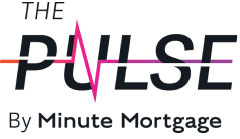Pros and Cons of Refinancing Your Mortgage
Refinancing for the right reasons at the right time can be hugely beneficial for homeowners. It can provide a much-needed influx of cash at a low-interest rate or keep more money in your pocket over the life of your loan.
While the positives are plenty, there are things to consider before refinancing your home’s mortgage. If you have questions about any of the considerations below, we encourage you to reach out to our team of our experienced loan experts.
Refinancing to Reduce Your Interest Rate
Pros
Securing a lower interest rate via refinancing can save you thousands of dollars over the life of your loan. It’s quite common for homeowners to take advantage of an improved credit score or plunging interest rates and secure themselves a friendlier mortgage.
Considerations
Make sure you know your break-even point. That’s the point at which your savings from a lower mortgage rate exceed the costs of refinancing. If you plan to sell your home in the near future, you may not reach your break-even point and the costs will be a net loss.
There’s another consideration if you’ve been paying off your 30-year loan for a number of years already: While refinancing to another 30-year loan may lower your monthly payments, you’re now starting the clock over on your path to owning your home outright.
But that leads to another…
Pro
Our loan specialists can provide refinanced loans with custom amortization so you won’t have to restart the clock, as it were. It will likely cost you an extra few hundred dollars a month to go with this option, but you’ll still have that lower interest rate and own your home outright quicker. Get in touch with our team to discuss this option.
Using a Cash-Out Refinance to Consolidate Debt
Pros
It can certainly make financial sense to tap into your home’s equity to pay off debt via a cash-out refinance. Consolidating debt that accrues interest at 20% to a mortgage with a 3.5% interest rate can save a lot of money in the long term, for example.
Considerations
You’ll be transferring unsecured debt to secured debt. Here’s a way to think about that: You don’t lose your home if you can’t make credit card payments. You can lose your home if you continue to miss mortgage payments.
You also have to make sure you don’t take out so much cash that you’re left with a loan-to-value ratio of more than 80%. You’ll have to start paying private mortgage insurance (PMI) if you dip below that mark, which will likely cost you a few thousand dollars a year.
You should also be confident you’ve changed your ways if you’ve had past issues with abusing credit. It can be tempting to revert to poor spending habits if your credit cards have full limits again.
Refinancing From an Adjustable-Rate Mortgage (ARM) to a Fixed-Rate Mortgage
Pros
This can be a good idea if you plan to stay in your home long term. Switching from the unpredictability of an ARM to the stable, never-changing monthly payments of a fixed-rate mortgage can both save you money and stave off anxiety.
Considerations
If your ARM’s current rate is low and you plan to sell your home before the next rate adjustment, there may be no upside to switching to a fixed-rate mortgage. Even if the fixed-rate mortgage you’d be switching to has a lower rate, the closing costs of the refinance could make it not worth it.
Refinancing to Reduce Your Loan Term
Pros
Shortening your loan term can be a good idea if you’re financially strong enough to secure a lower interest rate. Switching from a 30-year loan to a 20- or 15-year loan will likely save you tens of thousands of dollars in the long run, even if it means higher monthly payments during the length of the term.
Considerations
You need to be confident you’ll be able to handle the higher monthly payments you’ll be responsible for when switching to a shorter term. You don’t want to find yourself in a bind down the road because your financial situation worsened and you can’t keep up with your monthly responsibilities.
Using a Cash-Out Refinance to Make Home Improvements
Pros
This is one of the most popular reasons for getting a cash-out refinance, and with good reason. Tapping into your home’s equity can allow you to fix a busted HVAC unit, renovate your outdated kitchen or take care of other home improvement projects.
Using a cash-out refinance with a low interest rate can save you a lot of money in the long term compared to paying for these same projects with a high-interest credit card.
Considerations
If you’re making improvements for the sole purpose of increasing your home’s value before selling it, make sure the renovations you’re making lead to a good return on investment (ROI). Not every renovation project will raise your home’s value enough to make the costs worth it.
This really isn’t something to worry about if you’re planning to stay in your home long term and you’re simply making the improvements for your own enjoyment.


 7 Minute read
7 Minute read



